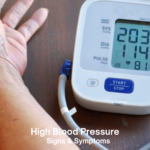Understanding Hand Tremors: Causes, Diagnosis, and Treatment
Hand tremors are involuntary, rhythmic muscle contractions that lead to shaking movements in one or both hands. These tremors can be mild and barely noticeable or severe enough to interfere with daily activities. Understanding the underlying causes, diagnosis, and treatment options is crucial for managing this condition effectively.
Causes of Hand Tremors
Hand tremors can result from a variety of underlying conditions, including neurological disorders, medical conditions, and lifestyle factors.
1. Essential Tremor (ET)
Essential tremor is the most common cause of hand tremors. It is a neurological disorder that causes rhythmic shaking, usually in the hands. ET often runs in families, suggesting a genetic component. Unlike other types of tremors, essential tremors can improve with alcohol consumption, although this is not a recommended treatment.
2. Parkinson’s Disease
Parkinson’s disease is a progressive neurological disorder characterized by tremors, stiffness, and bradykinesia (slowness of movement). The tremors associated with Parkinson’s disease typically occur at rest and can affect one or both hands.
3. Multiple Sclerosis (MS)
Multiple sclerosis is an autoimmune disease that affects the central nervous system. Hand tremors in MS patients are often due to lesions in the cerebellum, the part of the brain that controls movement coordination.
4. Hyperthyroidism
An overactive thyroid gland can lead to symptoms such as increased heart rate, weight loss, and hand tremors. The excess thyroid hormone can overstimulate the nervous system, leading to tremors.
5. Alcohol Withdrawal
Chronic alcohol consumption followed by sudden cessation can lead to withdrawal symptoms, including hand tremors. These tremors are part of a larger set of withdrawal symptoms known as delirium tremens.
6. Medications
Certain medications can cause hand tremors as a side effect. These include drugs used to treat asthma, depression, and some antipsychotic medications.
Diagnosis of Hand Tremors
Diagnosing the cause of hand tremors involves a detailed medical history, physical examination, and sometimes specialized tests.
1. Medical History and Physical Examination
The doctor will ask about the onset, frequency, and severity of the tremors. They will also inquire about family history, medications, and any other symptoms. During the physical examination, the doctor will observe the tremors and perform neurological tests to assess coordination, muscle strength, and reflexes.
2. Laboratory Tests
Blood tests can help identify underlying conditions such as hyperthyroidism or electrolyte imbalances. These tests can rule out metabolic causes of tremors.
3. Imaging Studies
Imaging studies such as MRI or CT scans can help identify structural abnormalities in the brain or spinal cord. These tests are particularly useful in diagnosing conditions like multiple sclerosis or brain tumors.
4. Electromyography (EMG)
EMG measures the electrical activity of muscles and can help distinguish between different types of tremors. This test involves inserting a needle electrode into the muscle to record electrical activity during rest and movement.
Treatment of Hand Tremors
The treatment of hand tremors depends on the underlying cause. In many cases, addressing the root cause can significantly reduce or eliminate the tremors.
1. Medications
Medications are often the first line of treatment for hand tremors. The choice of medication depends on the underlying condition.
Beta-Blockers: Drugs like propranolol are commonly used to treat essential tremors. They work by blocking the effects of adrenaline, which can reduce tremor severity.
Anti-Seizure Medications: Drugs like primidone can be effective in treating essential tremors.
Parkinson’s Medications: Levodopa and dopamine agonists can help manage tremors associated with Parkinson’s disease.
Anti-Anxiety Medications: Benzodiazepines like clonazepam can help reduce tremors caused by anxiety.
2. Physical Therapy
Physical therapy can help improve muscle control and coordination. Occupational therapists can provide assistive devices to make daily activities easier.
3. Lifestyle Changes
Lifestyle modifications can also help manage hand tremors. These include:
Avoiding Caffeine: Caffeine can exacerbate tremors, so reducing or eliminating caffeine intake can help.
Stress Management: Techniques such as yoga, meditation, and deep breathing can help reduce stress, which can worsen tremors.
Exercise: Regular exercise can improve overall muscle control and reduce the severity of tremors.
4. Surgery
In severe cases where medications and lifestyle changes are ineffective, surgical options may be considered.
Deep Brain Stimulation (DBS): This involves implanting a device that sends electrical impulses to specific areas of the brain that control movement. DBS is effective in reducing tremors in patients with Parkinson’s disease and essential tremors.
Thalamotomy: This surgical procedure involves destroying a small part of the thalamus, a brain region involved in movement control. It is less commonly performed than DBS due to its irreversible nature.
5. Botox Injections
Botox injections can help reduce tremors by temporarily paralyzing the affected muscles. This treatment is particularly useful for head and voice tremors, but it can also be used for hand tremors.
Living with Hand Tremors
Living with hand tremors can be challenging, but there are several strategies to improve quality of life:
Adaptive Devices: Using specially designed utensils, pens, and tools can make daily tasks easier.
Support Groups: Joining support groups can provide emotional support and practical advice from others who are experiencing similar challenges.
Education: Educating yourself and your family about the condition can help in managing symptoms and reducing frustration.
Conclusion
Hand tremors can significantly impact daily life, but understanding their causes, diagnosis, and treatment options can help manage the condition effectively. By working with healthcare professionals and exploring various treatment strategies, individuals with hand tremors can improve their quality of life and maintain greater control over their symptoms.





